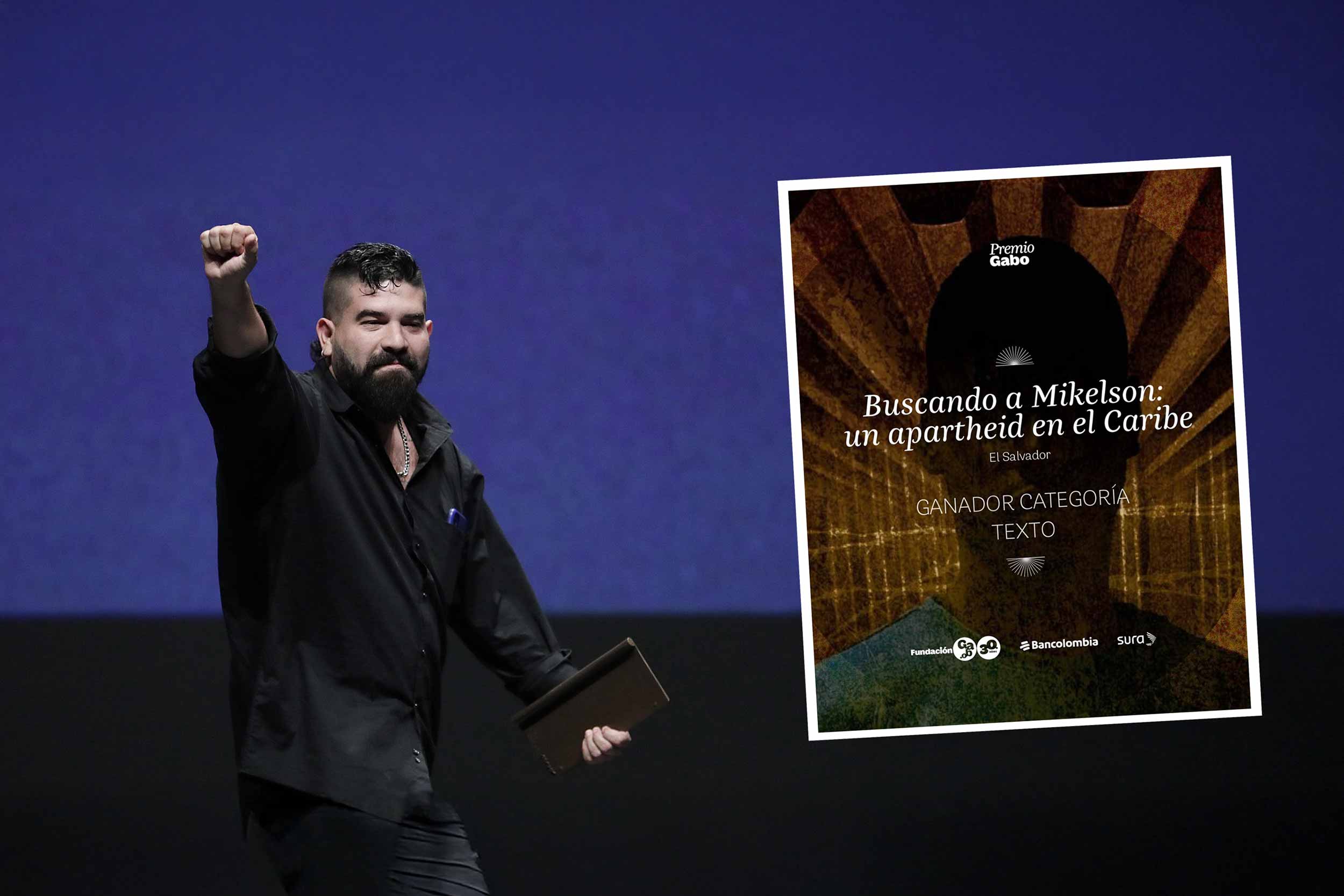IWPR Story Wins Major Prize
Investigation uncovered the systematic human rights violations against Haitians in the Dominican Republic.
An IWPR-supported investigations into the abuse and racism surrounding the Dominican Republic’s mass deportation of Haitians has won a prestigious Latin American journalism award.
Looking for Mikkelson received the Gabo Foundation prize, founded by Colombian Nobel Prize winner Gabriel García Márquez, himself a pre-eminent investigative reporter.
Journalist Juan Martínez D’Aubuisson’s search for a Haitian migrant assaulted by police revealed the impact of widespread racial prejudice.
“We uncovered the systematic human rights violations against the Haitian population in the Dominican Republic,” said D’Aubuisson. “This is significant because we showed both the Dominican public and the international community how the Dominican government's racist and discriminatory practices are affecting tens of thousands of people on the island.”

Held in the Colombian capital Bogota in July, the Gabo festival is the largest celebration of journalism and culture in Latin America.
Daniel Valencia, the founder of Redaccion Regional, which originally supported the story, said that winning the prize had vindicated their ongoing efforts to hold the powerful to account.
“Our commitment to collaborative journalism in the region—focused on investigation and exposing serious human rights violations committed by cruel States, either co-opted or colluding with organized crime—has only been underway for three years,” he said. “In this short time, winning the Gabo Prize is a much-needed boost that encourages us to keep going in the direction we believe is right, in a context where investigative journalism is being silenced and independent media and journalists are under attack.”
Another IWPR-supported story, Death Flights, was also shortlisted for the awards. The team at environmental outlet Mongabay Latam used AI and satellite data analysis to identify nearly 70 clandestine landing strips used for drug transportation in and around indigenous Peruvian communities.
"The impact was immediate,” said Alexa Velez, managing editor of Mongabay Latam. The report was shared by public figures including former Prime Minister Alberto Otárola and republished by dozens of Latin American media outlets, enabling indigenous leaders to demand greater protection. Further afield, the Wall Street Journal highlighted its innovative use of AI as a methodological breakthrough, and the piece is also a finalist for the Global Investigative Journalism Network 2025 Global Shining Light Awards.
Both stories were part of an IWPR project providing journalists with the training, financial resources and mentorship to combat these challenges.
"The guidance and close editing work done by [my mentor] has been incredibly supportive and has allowed me to fully develop my skills as a researcher,” D’Aubuisson said. “The support has allowed us to identify our physical and digital security vulnerabilities much more easily.
“After this process, I feel much safer and believe I now have much more effective tools to protect both my communications and the information gathered during investigations.”
Velez agreed, adding, “Internally, the work strengthened safety protocols and post-publication support, making it possible to create a replicable investigative model for high-risk areas, without endangering communities or journalists."
